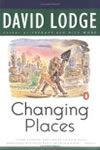The Clinton-Obama horserace obscures an important and interesting dynamic: American progressives and liberals will like either candidate more than any candidate in recent memory.
A fact of life in US politics, essentially for as long as anyone can remember, is that the Reform and Progress was always allied with the South — a region that cared only about the preservation of its peculiar racial practices. The GOP owned New England; the Southern alliance was the only way an opposition could operate nationally.
The last vestige of this system gave us a serious of compromised candidates who were the mildest of progressives, the most tentative and safe of reformers. Humphrey — not the firebrand of 1948 but the timid veep of 1968 — gave way to Carter, Clinton, Kerry. Except for the hopeless crusade for McGovern, you could go back a long way indeed as a Democrat without a presidential candidate who was really someone you could wholeheartedly support.
And by this I don't mean a perfect candidate. I mean a candidate who was basically right on most of the key issues and core values.
This year, it's different, because either way this year we get a choice between a truly terrible administration and a Democrat who is right. You might prefer Clinton, you might prefer Obama. Either one is miles better than Bush.
And, this time, there won't be a Dixie anchor to impede Progress. New York and New England are the Solid North. It's going to be hard; Bush is determined to leave lots of wreckage in his wake and to deplete the treasury before he leaves. But, either way, it's going to be the first time since Roosevelt I that progressives had a nominee with which they could be entirely at home.
